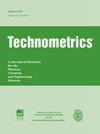测量误差模型手册
IF 2.5
3区 工程技术
Q1 STATISTICS & PROBABILITY
引用次数: 1
摘要
本章最后对模运算进行了令人惊讶的长篇介绍。第6章专门讨论有理数,它是整数的自然和合法继承者。本章在定义有理数并解释其加法和乘法之后,讨论了有理数的可数性。本章中证明的一个有趣的事实是有理数是可数的,这意味着它们只有整数那么多。本章以一个可爱但简洁的序列和系列介绍结束。第7章是关于实数的。它从有理数集的完备性这个有趣的问题开始,并继续陈述众所周知的实数完备性公理。还讨论和演示了Dedekind切割。实数的不可数性指的是实数多于有理数。本章使用了著名的对角线论证来证明这一事实。最后,本章讨论了代数数和超越数。二次扩展在第8章和第9章中进行了讨论。这两章涉及的主题相对复杂,需要读者更加成熟和集中注意力。第10章试图说服读者,数字世界比他们意识到的更广阔、更广阔。它分为两部分:一部分关于可构造数,另一部分关于超复数,其中包括对希尔伯特四元数和约翰·格雷夫斯八元数的描述。第11章是一本两页的指南,读者应该参考它来更全面、更深入地了解数字系统。这意味着,除了抽象代数之外,分析是一个产生更优雅和意想不到结果的优秀领域。总之,这本书是向本科生介绍数字系统的一次伟大尝试,主要关注数学的严谨性。虽然一方面,它提供了定理及其证明的详细但容易理解的解释,但另一方面,这是为了提供一年级数学课程所需的解释水平,而大多数其他人都没有做到这一点。本文章由计算机程序翻译,如有差异,请以英文原文为准。
Handbook of Measurement Error Models
chapter ends with a surprisingly-long account of modular arithmetic. Chapter 6 is devoted to rational numbers, which are the natural and legitimate successors to integers. The chapter discusses the denumerability of rationals after defining rational numbers and explaining their addition and multiplication. An interesting fact proved in the chapter is that rational numbers are countable, which means they are only as many as integers. The chapter concludes with a lovely but succinct presentation of sequences and series. Chapter 7 is about real numbers. It begins with the intriguing question of the completeness of the set of rational numbers and proceeds to state the well-known Axiom of Completeness of Real Numbers. Dedekind cuts are also discussed and demonstrated. The uncountability of reals refers to the fact that there are more reals than rationals. The famous diagonal argument is used in the chapter to demonstrate this fact. Finally, the chapter discusses algebraic and transcendental numbers. Quadratic extensions are discussed in Chapters 8 and 9. The subject matter covered in these two chapters is relatively complex, necessitating greater maturity and concentration on the part of the readers. Chapter 10 attempts to convince readers that the world of numbers is vaster and more immense than they realize. It is divided into two sections: one on constructible numbers and one on hypercomplex numbers, which includes accounts of Hilbert’s quaternions and John Graves’ octonions. Chapter 11 is a two-page guide to which readers should refer for a more comprehensive and advanced understanding of number systems. It implies that, in addition to abstract algebra, analysis is an excellent field for producing more elegant and unexpected results. In all, the book is a great attempt to introduce number systems to an undergraduate audience with the main focus on the rigor of mathematics. While, on the one hand, it provides detailed but accessible explanations of theorems and their proof, on the other hand, it is an attempt to provide the level of explanation needed for a first-year mathematics course on the subject that most others fail to do.
求助全文
通过发布文献求助,成功后即可免费获取论文全文。
去求助
来源期刊

Technometrics
管理科学-统计学与概率论
CiteScore
4.50
自引率
16.00%
发文量
59
审稿时长
>12 weeks
期刊介绍:
Technometrics is a Journal of Statistics for the Physical, Chemical, and Engineering Sciences, and is published Quarterly by the American Society for Quality and the American Statistical Association.Since its inception in 1959, the mission of Technometrics has been to contribute to the development and use of statistical methods in the physical, chemical, and engineering sciences.
 求助内容:
求助内容: 应助结果提醒方式:
应助结果提醒方式:


